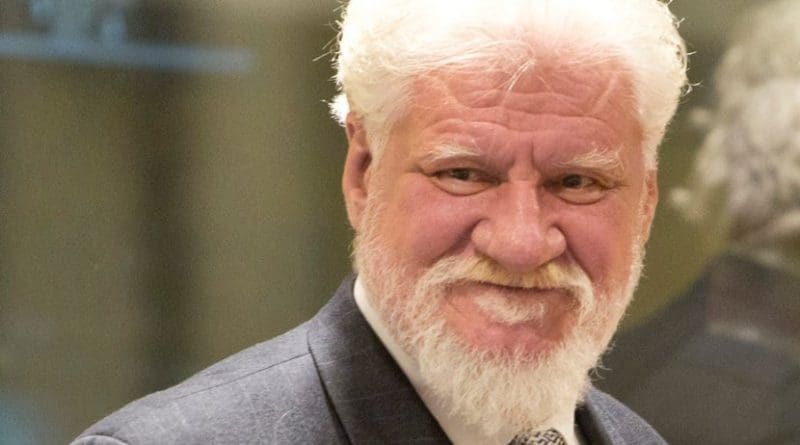Slobodan Praljak Suicide ‘Couldn’t Be Prevented’
An inquiry by the Hague-based war crimes tribunal said it could not have stopped Bosnian Croat war criminal Slobodan Praljak from killing himself by taking poison in the courtroom.
Without specific intelligence, there were no measures that would have guaranteed detection of the poison that Slobodan Praljak took in court in November after his sentence was announced, said an independent expert review published by the International Criminal Tribunal for the Former Yugoslavia on Sunday.
“It is not possible to conclusively state when and how the poison came into Mr. Praljak’s possession. The ongoing criminal investigation before Dutch authorities might shed light on this,” said Gambian judge Hassan Jallow, who led the review.
“It is important to note at the outset that there was no intelligence available to UNDU [UN Detention Unit] staff or ICTY staff in general, indicating that Mr. Praljak was in possession of the poison,” Jallow added.
The substance taken by Praljak in court during the reading of his verdict on November 29 was analysed and discovered to be potassium cyanide, which he could not have obtained or manufactured in the detention unit in The Hague. It remains unclear how Praljak got access to it.
“Potassium cyanide can be transported as a powder or dissolved in water. The amount of potassium cyanide required to make up a lethal dose is 200-300 mg (this equates in size to a single tablet),” Jallow said.
This mean that the poison “could easily have remained undetected even through the most intrusive searches of persons, cells, and other areas”, he added.
Restrictions on intrusive searches and the equipment available to ICTY staff to screen defendants also meant that such a poison would be hard to detect, the review said.
Jallow recommended improved search regimes and a 30-minute delay on the broadcast of verdicts.
Praljak, 72, was the commander of the Main Headquarters of the Bosnian Croat wartime force, the Croatian Defence Council, HVO.
As the ICTY confirmed his conviction, he interrupted the proceedings.
“Slobodan Praljak is not a war criminal. I reject your judgment,” he shouted at the judge.
He then drank from a vial of poison that he had managed to conceal, and died not long afterwards.
After his death, he was hailed as a heroic figure by some Croats, and several thousand people, including two Croatian ministers, MPs and generals attended a ceremony at Zagreb’s biggest concert hall to commemorate him.
Senior Croatian officials expressed remorse over his death, while Prime Minister Andrej Plenkovic called the verdict a “deep moral injustice to the six who were convicted”.
As well as Praljak, the ICTY on November 29 also upheld the convictions of five other political and military leaders of the unrecognised wartime Croatian Republic of Herzeg-Bosnia statelet for crimes against Bosniaks in Bosnia and Herzegovina.
Jadranko Prlic, Bruno Stojic, Milivoj Petkovic, Valentin Coric and Berislav Pusic were all found guilty of crimes against humanity and other crimes against Bosniaks while they were senior political and military officials of the Herzeg-Bosnia statelet during wartime.

